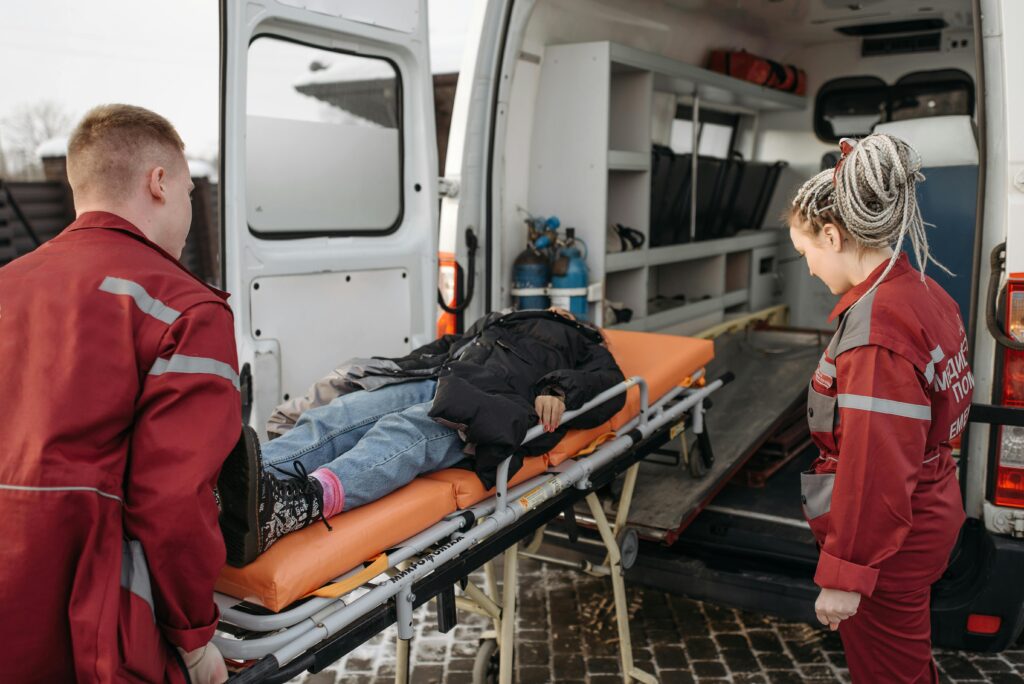Collective Trauma: Understanding and Healing Together

Collective Trauma: Understanding Our Shared Psychological Experiences and Healing Together
Defining Collective Trauma in Our Communities
Collective trauma refers to the psychological distress experienced by a group of people who share a traumatic experience or event. These catastrophic occurrences can fundamentally alter how society functions, change widespread beliefs, or create historical trauma that resonates through generations.
Beyond individual impacts, collective trauma profoundly affects entire communities, creating a collective memory that involves not only remembering the events but continuously reconstructing them as we attempt to make sense of our shared experiences.
How Shared Traumatic Events Affect Us
Collective trauma produces mental health consequences for everyone affected—both directly and indirectly. The intense grief, fear, and complex emotions resulting from traumatic experiences can reshape how individuals live their lives and how entire societies function moving forward.
If you or someone in your community is experiencing collective trauma, know that there are pathways to process these emotions and move forward. Let’s explore common causes of collective trauma, understand its impacts, and discover effective coping mechanisms.
Common Sources of Collective Trauma
Traumatic events that affect communities can take many forms, but several categories tend to create widespread psychological impact:
Health Crises and Pandemics
Large-scale illness and death often lead to collective trauma. The fear that you or your loved ones might contract a serious disease creates intense anxiety, grief, and disruption to normal life—as many experienced during COVID-19. The preventative measures, such as social isolation, and the loss of community members can be deeply traumatic.
Natural Disasters
Hurricanes, tornados, tsunamis, earthquakes, and wildfires can devastate communities physically and emotionally. Beyond injury and death, the loss of homes, historical landmarks, and community spaces can result in widespread fear and permanently alter how a community prepares for and responds to future threats.
Conflict and Violence
Those involved in or affected by war experience intense fear, guilt, and emotional pain resulting from injuries, casualties, or displacement. Communities under occupation or threat face ongoing trauma associated with fear and loss. Even those not directly involved in conflict can experience secondary trauma through media exposure and concern for others.
Mass Violence and Terrorism
Acts of terrorism, mass shootings, hate crimes, and other forms of mass violence create trauma for both direct victims and the broader community. These events can cause trauma through direct witnessing, survivor’s guilt, or persistent fear of future violence. Major tragedies like these often result in societal changes as communities attempt to prevent recurrence.
Loss of Significant Figures
When a person who holds significant meaning for a community dies—whether a political figure, religious leader, or social activist—their passing can cause collective grief and trauma. This impact is magnified when the death results from violence or occurs under traumatic circumstances.
Economic Crises
Widespread economic distress, such as recessions or depressions, creates collective trauma through financial insecurity, loss of employment, debt, food insecurity, and housing instability. These experiences can fundamentally change how communities manage resources and approach financial security for generations.
Mental Health Impacts of Collective Trauma
While collective trauma affects groups, individual experiences vary considerably. There’s no standard timeline for symptoms, and each person may experience different combinations of the following:
- Psychological distress: General stress, grief, and overwhelming emotions
- Panic attacks: Sudden episodes of intense fear without immediate danger
- Sleep disruptions: Nightmares, insomnia, and restlessness
- Post-traumatic stress disorder (PTSD): Ongoing stress reactions including flashbacks, hypervigilance, and avoidance behaviors
- Dissociation: Disconnecting from thoughts and feelings as a defense mechanism
- Anxiety: Persistent worry and fear, either general or specific to triggering situations
- Depression: Profound sadness, social withdrawal, loss of interest, and other depressive symptoms
Building Resilience After Collective Trauma
Traumatic experiences can have severe mental health implications, but there are effective ways to process emotions, heal from pain, and move forward healthily. Consider these approaches:
Honor Your Emotional Process
After experiencing trauma, it’s natural and necessary to grieve. Whether you’re mourning loss of life, community stability, or your sense of safety, giving yourself permission to feel and process emotions is an essential first step in healing.
Prioritize Self-Care
Taking care of yourself during times of distress significantly impacts your mental health and overall wellbeing. Self-care might include reading, taking warm baths, listening to music, resting, physical exercise, connecting with loved ones, or engaging in meaningful hobbies.
Embrace Mindfulness Practices
Mindfulness has proven effective for reducing the effects of psychological trauma, anxiety, depression, and stress. Simple practices include focused breathing exercises, fully immersing yourself in a sensory experience like music, or taking mindful walks where you pay attention to the world around you.
Engage With Your Community
Taking action to help affected communities can benefit your own wellbeing after a traumatic event. Volunteering to assist with recovery efforts or supporting those who’ve lost homes or loved ones can decrease your anxiety and depression while fostering connection and purpose.
Connect With Professional Support
Speaking with a mental health professional about your experiences can provide valuable perspective and coping strategies. ReachLink’s licensed therapists specialize in trauma recovery and can offer evidence-based approaches tailored to your specific needs and circumstances.
Join Support Groups
Connecting with others who’ve shared similar traumatic experiences creates understanding and validation that general support sometimes can’t provide. Group therapy and community support groups offer spaces to process collective experiences together.
Moving Forward Together
Collective trauma changes us—as individuals and as communities. By acknowledging our shared experiences, supporting one another through the healing process, and implementing healthy coping strategies, we can build resilience that carries us forward.
At ReachLink, we understand the complex nature of collective trauma and offer specialized support through our telehealth platform. Our licensed therapists provide evidence-based trauma treatment that acknowledges both the individual and collective dimensions of traumatic experiences.
Whether you’re dealing with recent trauma or processing historical events that continue to affect your community, healing is possible. Through compassionate connection, professional support, and resilience-building practices, we can transform our relationship with collective trauma and create pathways to recovery—together.
